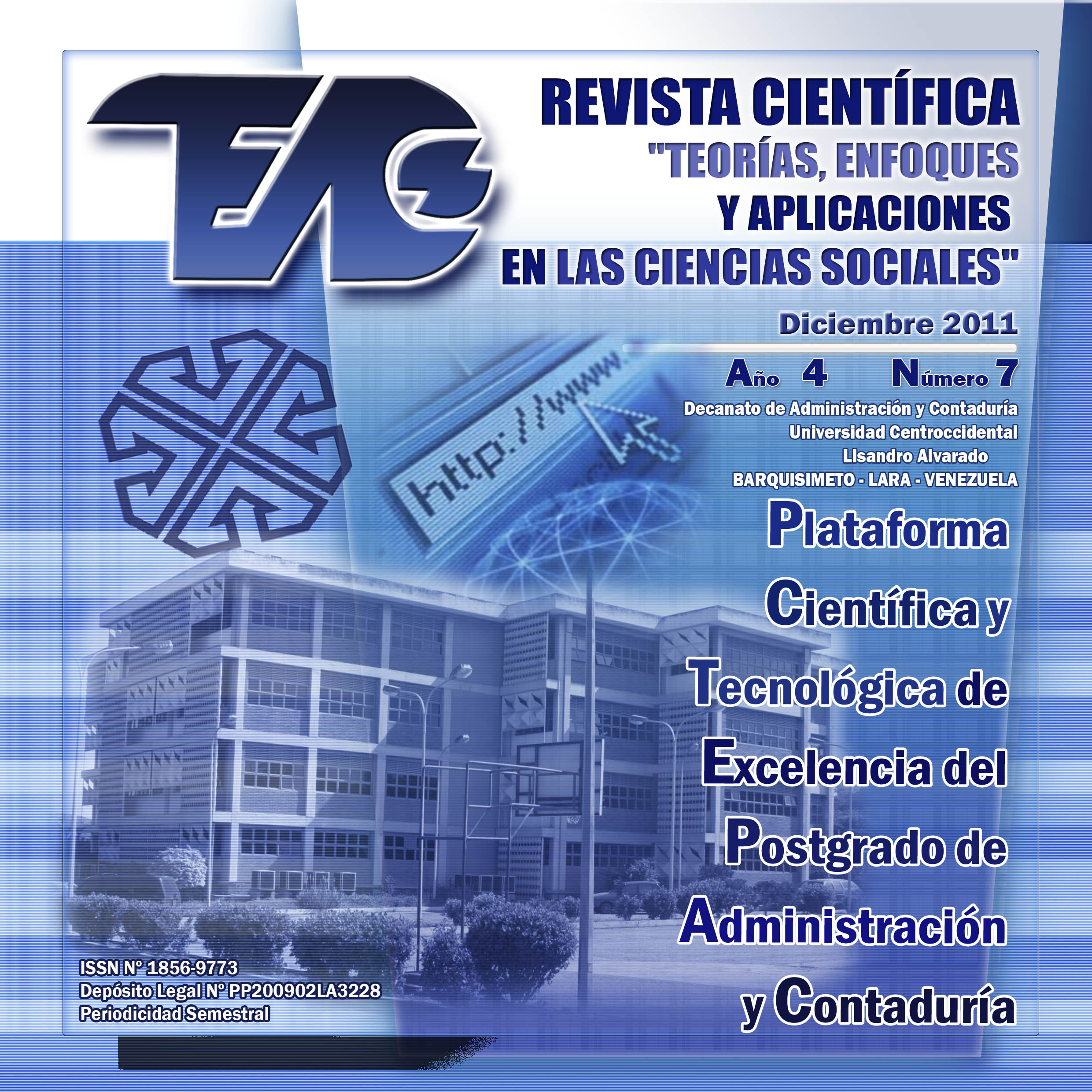The Venezuelan integration policy: the case of mercosur
Keywords:
economic integration, trade indexes, Mercosur, VenezuelaAbstract
The policy of economic integration in the case of Venezuela, it is a central goal within the framework of the Constitution and national development plans and places particular emphasis on South American integration, serving the people and beyond the strictly economic. Hence, the Venezuelan government has applied for admission to MERCOSUR, which is manifested by the signing of the framework agreement in 2005 and the Protocol of Accession in 2006, but to date no has been the ratification of the Protocol by the Senate of Paraguay, so that Venezuela is not yet a full member of the integration agreement. Since the economics are essential in an integration agreement, the following question arises, do we really, from the economic point of view, Venezuela has no advantages over Mercosur? This article attempts to advance an answer to this question, concluding that Venezuela's integration policy, in the case of MERCOSUR, not due to economic reasons. We do an analysis of trade specialization index, the index of similarity and the rate of intra-industry trade to determine the economic conditions in Venezuela over the same and effectiveness of the Venezuelan political integration within the framework of its economic policy. In the field of space research is delimited to MERCOSUR (Argentina, Brazil, Uruguay and Paraguay) and Venezuela, while temporarily investigation covers the period 1999-2008.
Downloads
References
Comisión Económica para América Latina y el Caribe (1994). El regionalismo abierto en América Latina y el Caribe: La integración económica al servicio de la transformación productiva con equidad. Ediciones CEPAL. Chile. En línea: www.eclac.org . Consulta: 09-11-2008
Llairò, M. (2002). “La Integración Latinoamérica: de la ALALC al MERCOSUR” en Briceño Ruíz, J. y Bustamante, A. (Edit.) La Integración Latinoamérica. Entre el regionalismo abierto y la globalización. Universidad de Los Andes, Mérida. Venezuela. p.30-45.
Mendoza Álvarez, C y Reyes, P. (2009). “La adhesión de Venezuela al Mercosur: Cuando lo político desplaza lo técnico” en Briceño, J y Mendoza, C. Cambio y Permanencia en la Agenda de Integración de América del Sur. Universidad Centroccidental Lisandro Alvarado, Venezuela. p. 101-120
Mendoza Álvarez, C. (2010). Integración y Desarrollo: Correlaciones en la Comunidad Andina de Naciones y el Mercado Común del Sur. Período: 1999-2008. Tesis Doctoral. http://fondosdigitales.us.es/tesis/
Published
How to Cite
Issue
Section
Derechos del/de autor/es a partir del año de publicación
Esta obra está bajo la licencia:
Creative Commons Reconocimiento-NoComercial-CompartirIgual 4.0 Internacional (CC BY-NC-SA 4.0)
Las opiniones expresadas por los autores no necesariamente reflejan la postura del editor de la publicación ni de la UCLA. Se autoriza la reproducción total o parcial de los textos aquí publicados, siempre y cuando se cite la fuente completa y la dirección electrónica de esta revista. Los autores(as) tienen el derecho de utilizar sus artículos para cualquier propósito siempre y cuando se realice sin fines de lucro. Los autores(as) pueden publicar en internet o cualquier otro medio la versión final aprobada de su trabajo, luego que esta ha sido publicada en esta revista.



